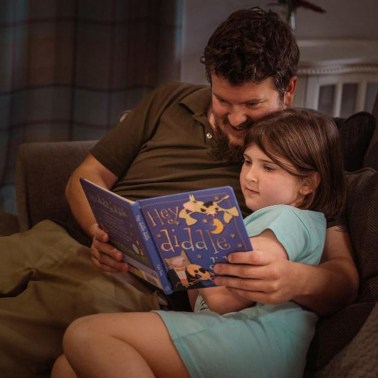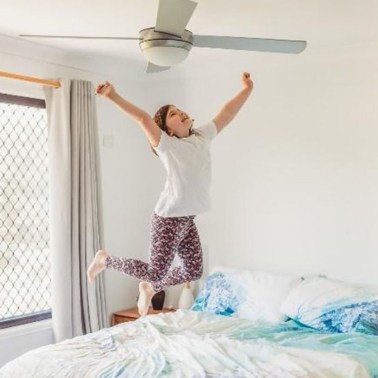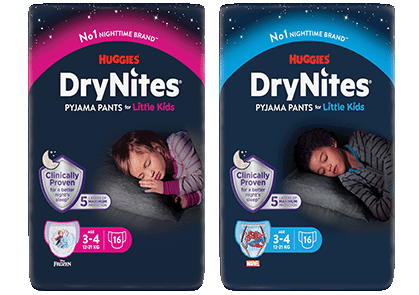What is ADHD?
The NHS explains that Attention Deficit Hyperactivity Disorder, or ADHD, is “a condition that affects people's behaviour. People with ADHD can seem restless, may have trouble concentrating and may act on impulse.
“Symptoms of ADHD tend to be noticed at an early age and may become more noticeable when a child's circumstances change, such as when they start school.
“Most cases are diagnosed when children are under 12 years old, but sometimes it's diagnosed later in childhood.”
Is there a link between ADHD and Bedwetting?
Bedwetting can run in families, and so it seems can ADHD. You may wonder then: can ADHD affect bladder control?
It is not really understood why many children who are affected with ADHD also have problems with enuresis (bedwetting), though some doctors think that it may have a couple of causes.
Both conditions are associated with delays in the development of the nerves and the central nervous system, so that may be a factor in why children with ADHD may be later than their peers in staying dry at night.
Another suggestion is that children who have ADHD don’t notice their body’s cues very easily and tend to ignore them. This would have the effect that they would not recognise the feeling of a full bladder and would delay acting on it.
What do the experts say about ADHD and bedwetting?
Dr Elizabeth Harstad, MD, MPH, says that delays in development can be to blame for kids with ADHD having enuresis problems. As your child develops, she says their bodies are able to do three key things:
- Release enough of a certain chemical at night-time to help concentrate their urine.
- Increase their bladder’s capacity so there’s enough room to store urine at night.
- Recognise that their bladder is getting full during the night so they can wake up and go to the bathroom.
ADHD can delay these abilities.

The good news is that bedwetting usually goes away on its own.
“Bedwetting can be hard on kids’ self-esteem. They may think it’s their fault or feel embarrassed by it. Other kids seem to not even notice the bedwetting, which can be frustrating for parents and caregivers. Keep in mind that kids can’t control when they develop the ability to stay dry,” concludes Dr Harstad.
How can I help my child with ADHD manage their bedwetting?
We shouldn’t treat children with ADHD any differently from other children when diagnosing and trying to cope with bedwetting. Experts such as Dr Harstad don’t think ADHD causes urinary incontinence, and neither does it appear that ADHD causes an overactive bladder.
If you’re worried, speak to your doctor
It’s important that you visit your doctor if you are worried about your child’s bedwetting, especially if you have been discussing medication for your child’s ADHD.
Some medicines can clash, and you don’t want to give your child something that would make either condition worse.


Do what works for your child
Your child may have a number of symptoms, both of their ADHD, and their bedwetting, that you need to watch out for. This can be a tricky juggling act of course, as you’ll want your child to get plenty of good quality sleep—and that means trying to manage night-time accidents.
You may need to prioritise some of the symptoms because your child has a shorter attention span than others may have.
Don’t expect to tackle everything at once
Your child may feel overwhelmed if you try to tackle problems caused by ADHD at the same time as you help them manage their bedwetting.
So, if you are having a period of time when you try to help your child manage to stay dry at night, relax on some other areas of behaviour.


Take care of yourself too
Caring for a child with ADHD can be challenging, so caring for one who also wets the bed can be an even greater strain.
Try to make sure that you prioritise your mental health, ask for help from friends and family when you need it and take time out on a regular basis.
Your wellbeing can have an impact on your child, and you can cope better with their challenges if you are feeling rested, calm and confident. Which is why caring for your own mental health while helping your child cope with bedwetting is crucial.
4 top tips for managing ADHD and bedwetting
While every child is different, there are some general, helpful tips to keep in mind when dealing with bedwetting and your child with ADHD.
Try to follow these tips consistently over a few weeks and keep things calm and stable at home. Your child has a lot to think about, so if you keep all these things the same, they will gain a feeling of familiarity that your child is likely to find comforting.
Tip #1: Limit drinking at night
Give your child plenty of water through the day but don’t offer lots to drink in the three hours before bedtime. A couple of mouthfuls in the evening will stave off thirst but not lead to a full bladder.
Tip #2: Offer a snack before bed
A very full stomach before bed doesn’t make anyone feel comfortable. Give your child their evening meal quite early and then offer a snack before bed. See our helpful feature on what foods can help or harm bedwetting.
Tip #3: Avoid caffeine
Don’t give your child coffee, tea, cola or any other drinks or foods containing caffeine, which can irritate the bladder and is a diuretic.
Tip #4: Offer reassurance
A child with ADHD needs the same reassurance as any child that this phase will pass and that they will be able to get the hang of staying dry at night.
The best thing you can do is support your child with ADHD and bedwetting
ADHD and bedwetting can be challenging for any parent and child, but both can be managed. In all honesty, your support is one of the most important factors in helping your child through the bedwetting phase.
Explore our bedwetting advice to help support your child through bedwetting: from encouraging them to wear DryNites® Pyjama Pants at night, to talking to them about bedwetting, and even sharing your own experiences of bedwetting or ADHD.
Together, let’s help your child stay dry at night, sleep well, and wake up awesome!



 your parenting partner
your parenting partner